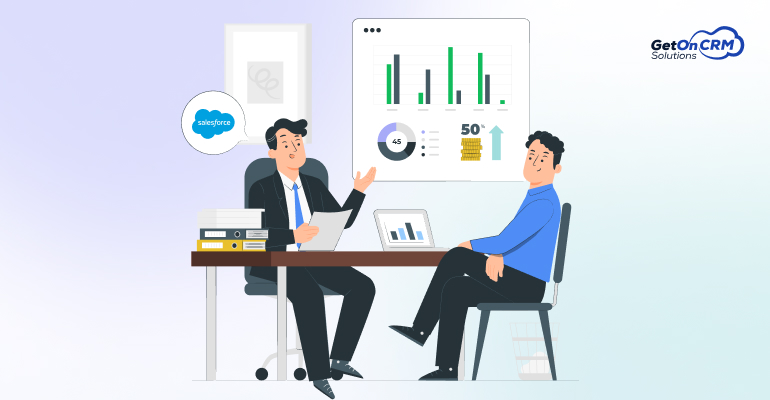As businesses navigate an increasingly complex marketplace, the ability to swiftly adapt and respond to consumer needs and market conditions is paramount. Salesforce Marketing Intelligence facilitates this agility by integrating various data sources to create a unified view of marketing efforts and customer interactions. This integration enables marketers to craft targeted strategies that significantly improve engagement and ROI.
The importance of Salesforce Marketing Intelligence in today’s business environment cannot be overstated. With its advanced analytics and AI-driven insights, it provides marketers with the tools needed to make informed decisions that drive business growth and customer satisfaction. By transforming raw data into actionable insights, businesses can enhance their strategic initiatives, ensuring they not only meet but exceed their marketing objectives.
Understanding Salesforce Marketing Intelligence
Salesforce Marketing Intelligence represents a paradigm shift in how businesses approach marketing data. At its core, this suite of tools was created to streamline and optimize the analysis of marketing efforts while giving an in-depth view of the customer journey. Salesforce Marketing Cloud seamlessly integrates this system to enhance traditional data management practices with new layers of intelligent insights.
Core Components
The foundation of Salesforce Marketing Intelligence is built on robust data integration capabilities. It pulls together disparate data sources, including direct customer interactions, social media feedback, and operational data, into a cohesive framework. This integration allows businesses to see not just what actions were taken but also the context and outcomes of those actions, providing a granular view of their marketing landscape.
Salesforce reports that high-performing marketing teams are 1.5 times more likely to use collaborative tools that enhance the sharing of data across systems, illustrating the critical role of integrated platforms in achieving superior marketing results.
This capability ensures that every piece of data is leveraged to inform decisions that enhance customer engagement and drive business growth.
AI-Driven Insights
What sets Salesforce Marketing Intelligence apart is its use of artificial intelligence through Einstein AI. This powerful tool goes beyond basic analytics to predict customer behaviour and prescribe specific marketing actions. By analyzing patterns in large datasets, Einstein AI can suggest the optimal timing for an email campaign or predict which product a particular customer segment is most likely to purchase.
The impact of these AI-driven insights can be substantial. According to Salesforce, campaigns that utilize AI capabilities see a significant improvement in engagement rates.
AI-enhanced email campaigns can achieve up to 30% higher open rates compared to those not supported by AI, demonstrating the tangible benefits of intelligent data analysis.
Real-Time Analytics
In today’s fast-paced market, the ability to make quick decisions is vital. Salesforce Marketing Intelligence offers real-time analytics, enabling marketers to respond immediately to customer interactions and market changes. This instant access to data ensures that marketing strategies can be adjusted on the fly, maximizing the effectiveness of campaigns and minimizing wasted effort and expenditure.
This responsiveness is not just about speed but also about relevance. A recent Salesforce study highlighted that marketing messages and offers that are tailored in real-time based on customer interactions have a 70% higher chance of conversion.
This responsiveness ensures that businesses are not just reacting quickly but also appropriately, aligning their strategies with the evolving needs and behaviours of their customers.
The Strategic Advantage of Salesforce Marketing Intelligence
Enhancing ROI
The ultimate goal of any marketing effort is to achieve a positive return on investment (ROI), and Salesforce Marketing Intelligence excels in this area. By providing marketers with powerful tools to analyze and predict customer behaviour, businesses are able to allocate their budgets more effectively, targeting the right customers with the right messages at the right time.
Marketing teams using Salesforce Marketing Intelligence have seen a 21% increase in marketing ROI year over year. This improvement stems from more targeted and efficient advertising spend, as well as enhanced customer segmentation and targeting strategies enabled by deep data insights.
Streamlining Operations
Beyond improving marketing ROI, Salesforce Marketing Intelligence helps streamline marketing operations, reducing costs and improving efficiency. Automated workflows reduce the need for manual intervention, allowing marketing teams to focus on strategy and creative efforts rather than mundane tasks.
Organizations utilizing these streamlined processes report a 27% reduction in marketing overheads, as automation and improved data management significantly cut down on resource wastage.
Business Benefits of Salesforce Marketing Intelligence
Salesforce Marketing Intelligence not only revolutionizes the way data is utilized in marketing strategies but also delivers substantial business benefits that can transform operational efficiencies and market reach. This section outlines the critical advantages that businesses can achieve by leveraging the power of Salesforce Marketing Intelligence.
Enhanced Customer Segmentation and Personalization
Salesforce Marketing Intelligence facilitates advanced customer segmentation, allowing marketers to divide their customer base into distinct groups based on their behaviours, preferences, and historical interactions. This segmentation is the backbone of personalization, enabling businesses to tailor their marketing messages precisely to meet the unique needs and interests of different customer groups.
Studies indicate that personalized marketing campaigns can increase sales by 10% and improve marketing spending efficiency by up to 30%, according to a Salesforce report. By using Salesforce Marketing Intelligence, businesses can harness these benefits, crafting campaigns that resonate on a personal level with their audience, thereby enhancing customer engagement and conversion rates.
Improved Campaign Effectiveness and ROI
The integration of AI-driven analytics and real-time data processing enables businesses to optimize their marketing campaigns in ways that were previously unattainable. Marketers can continuously refine and adjust their strategies based on immediate feedback and emerging data trends. This agility helps in significantly reducing wasted ad spend and increasing the impact of marketing investments.
Salesforce’s internal research highlights that businesses using their marketing intelligence solutions see an average increase in marketing ROI of up to 25%. This significant uplift is a direct result of more targeted advertising, improved customer insights, and the ability to adapt strategies in response to market dynamics swiftly.
Operational Efficiency and Cost Reduction
By automating routine tasks and streamlining data analysis processes, Salesforce Marketing Intelligence helps businesses achieve considerable gains in operational efficiency. Automation not only speeds up processes but also reduces the likelihood of human error, ensuring that data-driven insights are as accurate and reliable as possible.
Salesforce data shows that companies implementing automation and AI-driven tools report up to a 20% reduction in marketing costs. These savings stem from the decreased need for manual intervention, which allows staff to focus on higher-value activities that contribute directly to strategic goals and creativity.
Integration Capabilities and Extensibility
Seamless Integration with Salesforce Ecosystem
One of the most compelling advantages of Salesforce Marketing Intelligence is its seamless integration with the broader Salesforce ecosystem, including Sales Cloud, Service Cloud, and more. This integration ensures that all customer interactions, whether they are sales, service, or marketing-related, are captured in a unified platform, providing a 360-degree view of the customer.
The benefits of this integration extend beyond mere convenience; they facilitate more profound insights into customer behaviour across different touchpoints, enhancing the ability to cross-sell and upsell effectively. Companies using Salesforce’s integrated system report up to a 35% increase in cross-selling and upsell revenue, a testament to the power of comprehensive customer insights.
Extensibility Through AppExchange
Its extensibility further enhances Salesforce Marketing Intelligence’s capabilities through Salesforce AppExchange. AppExchange offers a plethora of applications, tools, and extensions developed by Salesforce partners. These tools can be seamlessly integrated into a company’s existing Salesforce environment, enabling them to extend functionality and tailor solutions to meet their specific business needs.
Businesses leveraging AppExchange can innovate faster, respond to changes more quickly, and maintain a competitive edge in their respective markets. The ability to customize and extend Salesforce Marketing Intelligence through these third-party applications means that no matter the business challenge, there is likely a solution available that can be integrated to address it.
Implementing Salesforce Marketing Intelligence
Implementing Salesforce Marketing Intelligence into your marketing strategy is a pivotal step towards transforming how your business engages with data and executes marketing campaigns. The implementation process, while straightforward for many organizations, involves careful planning and consideration of both technical and strategic aspects.
Step-by-Step Implementation Guide
- Initial Setup and Configuration: The first step is to set up Salesforce Marketing Intelligence on your Salesforce platform. It includes configuring settings to align with your business processes and integrating existing Salesforce products like Sales Cloud and Service Cloud.
- Data Integration: Import your existing customer data, marketing performance data, and other relevant datasets into Salesforce Marketing Intelligence. This integration is crucial for creating a comprehensive data landscape that the tool will analyze.
- Customization and Personalization: Utilize the customization options within Salesforce Marketing Intelligence to tailor the tool to your specific marketing needs. It might involve setting up custom dashboards, creating unique reports, and defining particular KPIs that align with your marketing goals.
- Training and Adoption: Ensure your marketing team is fully trained on how to use Salesforce Marketing Intelligence. Salesforce offers extensive training resources through its Trailhead platform, which provides interactive learning paths tailored to various aspects of the Salesforce ecosystem.
- Launch and Monitor: Once Salesforce Marketing Intelligence is set up and your team is trained, launch the system and start monitoring its performance. Initial monitoring helps identify any areas that may need adjustment and ensures that the system is functioning as intended.
- Ongoing Optimization: Marketing intelligence is not a set-and-forget tool. Continuously use the insights gained to optimize and refine your marketing strategies. Regularly update your setups to adapt to new market conditions and business objectives.
Leveraging Professional Services
For businesses looking to optimize their use of Salesforce Marketing Intelligence, professional services can offer valuable guidance. These services provide the expertise needed to fine-tune salesforce integration and customize salesforce solutions to meet specific business objectives, ensuring that all tools are being fully utilized to enhance marketing strategies.
Working with an experienced salesforce consulting firm can help streamline processes, integrate tools seamlessly, and unlock deeper insights from data. Companies that collaborate with expert teams often see improved outcomes from their marketing investments, benefiting from a more tailored and strategic approach.
Automation in Marketing with Salesforce
Automation is a cornerstone of Salesforce Marketing Intelligence, transforming routine marketing tasks and enabling more strategic, high-impact marketing efforts. By automating repetitive tasks, Salesforce allows marketing teams to focus on creativity and strategy, driving better outcomes and enhancing efficiency.
Benefits of Marketing Automation
- Increased Efficiency: Automation reduces the time spent on manual tasks, such as segmenting lists, sending emails, and posting on social media, thereby allowing marketers to focus on more strategic activities.
- Improved Lead Management: Automated lead scoring and nurturing ensure that leads are engaged at the right time in their buying journey, increasing the chances of conversion. For example, Salesforce users report up to a 30% increase in conversion rates through automated lead nurturing strategies.
- Personalized Customer Experiences: Automation enables personalized customer interactions at scale, ensuring that each customer receives relevant and timely communications. This relevance can lead to improved customer satisfaction and increased sales.
Implementing Marketing Automation
Implementing automation within Salesforce Marketing Intelligence involves setting up workflows that trigger actions based on predefined criteria. This setup includes automating campaign tracks, email marketing, social media posting, and lead-scoring activities. Salesforce’s intuitive interface allows marketers to design these workflows easily, ensuring that automation aligns perfectly with business goals.
Einstein Analytics: Transforming Data into Insights
Einstein Analytics is an advanced component of Salesforce Marketing Intelligence that uses AI to provide deeper insights into marketing performance and customer behavior. This tool allows businesses to anticipate trends and make proactive decisions.
Features of Einstein Analytics
- Predictive Insights: By leveraging machine learning, Einstein Analytics can predict customer behavior, helping marketers tailor their strategies to meet anticipated needs and preferences.
- Prescriptive Recommendations: Beyond predicting outcomes, Einstein Analytics suggests optimal marketing actions, thereby enhancing decision-making processes with AI-driven recommendations.
- Visual Data Exploration: Einstein Analytics features a powerful visualization tool that turns complex data sets into understandable and actionable graphs and charts, facilitating more straightforward data interpretation and analysis.
Impact of Einstein Analytics
Businesses using Einstein Analytics often see dramatic improvements in campaign performance due to the precision of AI-powered insights. Predictive capabilities can increase customer retention rates by identifying potential churn risks and suggesting timely interventions.
Data Cloud in Marketing: A Unified View
The Salesforce Data Cloud plays a pivotal role in unifying data across all customer touchpoints, providing a single, comprehensive view of customer interactions. This unified view is crucial for delivering consistent and personalized marketing across various channels.
Advantages of Data Cloud
- Unified Customer Profile: By consolidating data from various sources, the Data Cloud enables the creation of a unified customer profile, which is essential for understanding the full scope of customer interactions and preferences.
- Enhanced Data Security: With all data centralized, Salesforce ensures robust security measures are in place, protecting sensitive customer information from potential breaches.
- Seamless Integration: The Data Cloud integrates seamlessly with other Salesforce products, enhancing data accessibility and usability across the entire Salesforce ecosystem.
Leveraging Data Cloud for Marketing
Implementing the Data Cloud can significantly enhance marketing efforts by providing marketers with real-time data about customer behavior, preferences, and interactions. This real-time capability allows for more agile and effective marketing strategies that can adapt to customer needs as they evolve.
Conclusion
Salesforce Marketing Intelligence stands as a cornerstone technology for businesses looking to elevate their marketing strategies. By integrating comprehensive data analysis, real-time insights, and AI-driven automation, companies can not only anticipate customer needs but also respond to them with unprecedented precision and effectiveness.
As companies continue to navigate the complexities of modern markets, the adoption of sophisticated tools like Salesforce Marketing Intelligence will be crucial in maintaining competitiveness and fostering sustainable growth. Now is the time for businesses to embrace these technologies, unlocking new opportunities for innovation and success in the digital age.



















